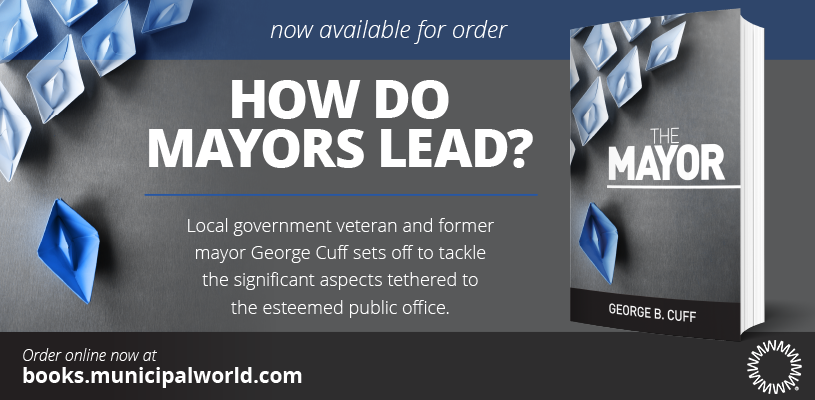What does a council do?

It seems to me that I have not addressed the basics of what a council does (or should do) in some time. Given that there are a number of provinces wherein municipal elections have recently occurred, re-visiting these fundamentals may be timely.
(As an aside, one of the documents I request when doing a major review of any organization is the orientation binder and a description of the steps utilized in the briefing by the administration. I begin at that point because that is where a council begins. Where you begin influences what you conclude.)
Represent
Council members are not very different than the folks they represent. They live in the community. They raise families. They find employment and pursue careers. They pay taxes. They complain about the glacial speed of change. They wonder if the municipality has too many employees or the right ones. In effect, they are normal. That is one of the attributes which endears them to the electorate.
Once in office, a council member is expected to stick with that formula. Do not change the perspective. You are “one of” not “apart from.” There should not be any need to consistently take public opinion polls to tell a councillor how to think. Just think … that is what the citizens want you to do. Do not go with the vocal few; stick with what you believe reflects the “public will.” Do not get stampeded by the well-organized (and sometimes well-paid for) delegation. Ponder. Reflect.
Lead
Too often, a council sees its role as simply affirming its administration’s advice. While I will have more to say regarding that role later, the council role is to think through each and every issue and determine where it wants to take the community. That is, while a council is expected to seek advice (and listen to its administration), only council has the authority to make the final decision. This is one of the responsibilities of a council that is most frequently misunderstood and therefore often squandered. In some cases, the procedural by-law (or past practice) works against a council by limiting its access to questions or by thwarting the intent of a councillor to present motions. In some instances, the council agenda is anything but. In other municipalities, the administration puts the agenda together and the council’s role is limited to approving pre-written motions. Everything becomes stacked against the notion of a council member being expected to think for themselves or, ironically, to lead.
The most logical way a council can lead is by establishing clear policies on issues that are either significant or repetitive or both. Policies drive (or demand) action. They not only require the administration to act on a specific resolution but also to do the same on decisions to which the policy speaks. Why a council is not able to discern this fundamental point escapes all logic.
Listen
Even King Solomon of biblical fame sought advice and he was reputed to be the wisest man in the world. The legal analogy is, as I understand it, “A man who is his own lawyer has a fool for a client.” Every council has an invaluable resource at its disposal: the CAO and her or his senior administration. The senior staff are well paid for good reason: they have a tremendous knowledge and skill bank which derives from related experience in this community or in a past environment. The advice should be clearly presented; include reasonable options; be absolutely clear; and be administratively defensible.
Each council should listen to the advice of their administration and weigh it against what they believe the public wants/expects. What is the best course of action? What allows the municipality to be sustainable in the future? What ensures a solid fiscal base on which to make future decisions? What decision allows future councils to have the capacity to make unencumbered choices?
Oversight
An often overlooked role of any council is to provide oversight. This seemingly unimportant role (in comparison to the others) is actually central to what any council is expected to do. Yes, a council needs to lead; and yes, a council ought to make clear policy decisions; and yes, a council needs to approve budgets and business plans. Perhaps of less interest (and certainly excitement) is the requirement that a council provide a sense of “one over” vis-à-vis the decision making of its administration.
The key to effective oversight is not hovering around work sites or offices. The essence of oversight lies in effective questioning and regular reporting. A member of council plays a very critical and important role by asking the right questions at the right time and in the right forum. While setting direction through policies and plans is essential, ensuring that those are being discharged as desired by council only occurs if there is some feedback loop that enables council to observe the effectiveness of its decisions through administrative implementation. Regular and comprehensive reporting by the CAO and his or her senior staff are core to this feedback loop.
Councils also need to provide oversight on how the administration treats the public and responds to its requests. This is best done through clearly written protocols that the administration is expected to follow and that it utilizes to guide junior employees.
While I have consistently identified the council-CAO relationship as central to much of what a council does, each council also has an oversight role in that relationship. Again, much of that is best fulfilled through effective reporting which occurs on a prescribed, regular basis.
Summary
These are but some of the key roles. However, without these roles being effectively discharged, the potential for success is negligible. MW
as published in Municipal World, January 2015
George B. Cuff, FCMC, our governance zone expert, has been involved in local government in one way or another since 1970. He has been a recreation and youth specialist, a department head, a mayor for 12 years, and a consultant/advisor to municipalities since 1976. He is the author of Executive Policy Governance; Off the Cuff: A Collection of Writings by George B. Cuff – Volumes 1, 2, and 3; and Making a Difference: Cuff’s Guide for Municipal Leaders, Volumes 1 and 2, published by Municipal World, as well as dozens of magazine articles and columns since 1984.
Related resource materials:



